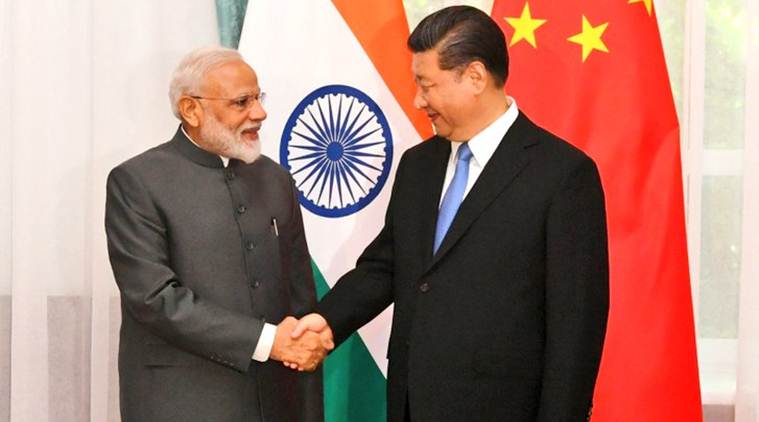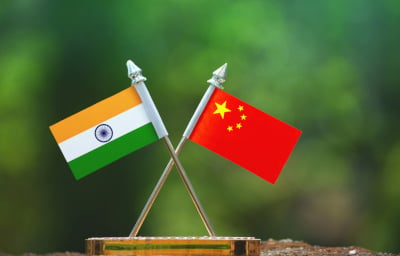Times are changing, aren’t they?
The world is no longer what it used to be.
The scales of power have always been constantly shifting in
terms of global politics, or to use the words of Daenerys, “Lannister,
Targaryen, Baratheon, Stark, Tyrell: they're all just spokes on a wheel. This
one's on top, then that one's on top, and on and on it spins, crushing those on
the ground.”
 |
| Daenerys Targaryen (Source: Pinterest) |
Earlier, at the time of World War II, USA and the USSR
controlled world politics. They had the power to make regimes rise and fall
anywhere in the world.
And, as two competing superpowers always do, they were
constantly at war with each other.
No, not directly, because of a little something called
Mutually Assured Destruction (MAD), they didn’t go to war directly.
Rather, they chose little playgrounds to go to war in. These
playgrounds included modern-day Korea, Vietnam, and most of South America,
among other countries.
 |
| The Vietnam War (Source: Britannica) |
However, in 1985, Mikhail Gorbachev become the President of
the USSR, and in 1991 he chose to disintegrate USSR into several smaller
countries, thereby signalling the end of the Cold War in USA’s favour.
Ever since then, the USA has been the only major superpower
in the world, having almost autonomous control on most international bodies,
and acting with impunity when and where it desires.
Until recently, when it met a competitor on the playground.
Yes, that’s right. China.
 |
| China (Source: Channel Futures) |
Tensions between China and the USA have been on the rise for
the past 2-3 years, and while they have not opted for military confrontations
(yet), they have been attacking each other on the economic front for a long
time.
With both countries being among the largest economies of the
world, this has had severe ramifications for the world in general, and we are
very close to a global recession.
However, there’s a teeny-weeny little problem with China’s
expansion plans: India.
Located very close to China, with an almost comparable
population and rising influence in the global sphere, India represents a threat
to China’s ambitions of global domination.
And therefore, China must do everything in its power to try
and mitigate India from further increasing its influence in global politics.
 |
| Modi and Xi Jinping (Source: The Indian Express) |
So, China resorted to underhanded techniques to make sure
India was so preoccupied with its own problems that it didn’t have any time to
focus on world politics.
However, here is the problem: not many of India’s neighbours
were large or powerful enough to be able to stand up to India and be enough of
a thorn in India’s side. So, China had to content itself with merely supporting
and funding one of them, Pakistan, and hoping it would be enough.
It wasn’t. Pakistan was, and is, grossly overmatched and underpowered in a fight with India.
 |
| India-Pakistan tensions fueled by China (Source: The Financial Express) |
However, things changed recently.
Beijing has become more and more influential in the past few
months, primarily because of their handling of the Coronavirus. In spite of
being ground zero for the virus, they have had very few cases compared to
Western countries like the USA, UK, or Germany.
Thus, China has been in a better position to portray itself
as a pillar of stability and good management as Western countries are
scrambling to accommodate patients in hospitals. So now that Beijing has
greater international influence, it can afford to influence more of India’s
neighbours to distract India with border issues.
And who better to do this than someone who has always
resented being suppressed by India: Nepal.
 |
| Nepal (Source: KimKim) |
The recent border tensions with Nepal date all the way back to
the abrogation of Article 370 in Jammu and Kashmir, when a map of the division
of the state into two different Union territories was released. This map
included the territories of Kalapani and Lipulekh shown as a part of Indian
territory.
After the map was released by Indian authorities, Nepal
objected to this map, stating that these territories actually belonged to them
as per the Treaty of Sugauli signed in 1816 by the countries. These territories
are located in the area bordering Nepal, India, and China.
At the time, Nepal had asked for a meeting with the Foreign
Secretary of India, but since the position was vacant, no meeting was granted.
Then, India decided to build a road in the Lipulekh
territory, a move that Nepal opposed vehemently, however Nepali officials were
told that the issue could be discussed after the COVID-19 crisis had been dealt
with.
 |
| The Lipulekh and Kalapani Corridor (Source: Jagran) |
Guess that wasn’t good enough for Nepal, because they
recently released a map of their own, and this is what has led to all of the
current fiasco in the media.
China has taken Nepal’s side, USA has inevitably opposed
China and said that China must stop trying to control smaller countries, but
the larger question still remains: Do we need to rethink our foreign policy
with regard to China?
China has been openly hostile towards India from the very
beginning. Whether it is refusing India’s application for the Permanent Member
status in the UN Security Council or granting asylum to known Pakistani
terrorists like Masood Azhar, China has made it clear time and again that it
does not care much for India.
Clearly, our present foreign policy isn’t working, and neither
is CM Yogi’s invitation for companies to leave China and come to UP.
 |
| India vs China (Source: YouTube) |
So, in this case, what could be the best option for India?
Should we ally ourselves with the USA and use American help
to counter Chinese influence? That might be a viable option, but we would just
be trading Chinese influence for American interference.
Should we try rebuilding a good and cordial relationship
with China? Been there, done that. Didn’t work.
Should we stay on the side-lines as we always do, and later
ally ourselves with the winner? No, we just run too much risk of becoming
collateral damage in case tensions escalate.
 |
| A solution to the China problem is needed (Source: InTouch) |
Then, what is the solution? The answer is that in the
current scenario, there isn’t one. No one strategy is better than the rest.
The only thing we know for sure is that Chinese influence
and interference needs to be countered and mitigated as quickly as possible,
and for that to happen, we need to redefine our foreign policy. And more
importantly, we need to pick a side.
Jai Hind!
-NK

India is allied with Israel, no? Why not seek counsel with Israel, to get some new ideas? That would be my move.
ReplyDeleteAllow US to set up a few bases in India and help US get out of Afghanistan.
ReplyDeleteI think Indian government first needs to recognise the fact that Chinese are our enemy and Stop hesitating. With this in mind, we should make a long term strategy to counter them to keep our influence in Asia.
ReplyDeleteKeep we should keep a cordial relationship with Russians as they too will be wary of Chinese influence in the region. But this relationship has now become a give and take as Russian support is no longer free since India decided to move towards US after Cold War and we should view it the same way from the recent moves of the Russians.
Sometimes we need to take a risk and make the smaller nations like Nepal realise the consequences of angering India as they are totally dependant on us. This can be done in various forms, first should be economic i.e. travel, Import like palm oil taxes that we increased recently. Second should be Propaganda in their country for angering India and their bigger consequences in the long term and this propaganda should be done before we take actions like economic sanctions.
Make friends with the neighbours of China as this will anyway irk them very much. Our best bet is the Japanese as the Chinese hate Japanese just like we Indians Hate Pakistanis.
Whenever they poke in Kashmir we should reply them back in the same form via Hong Kong, Tibet or Taiwan the very same day. This will keep them wary of escalation as they will open all the fronts Since US is in SCS.
Anyway my advice to Indian Foreign Policy makers is that We should be more aggressive and Open to take some risks. As a Businessman I believe, one can only make profits if the Company is ready to take risks. A country's policy should be viewed in same way.
Get Taiwan, Japan and South Korea to setup all manufacturing in India. Substitute Chinese imports with local manufacturing. Stop selling minerals especially iron ore to China, and use the same for our own civilian and military iton needs. Get metallurgical technology from Germany. And ally with Australia. Become Australia's market, and get Australian universities to setup in India. Enable Australian green card for Indians.
ReplyDelete